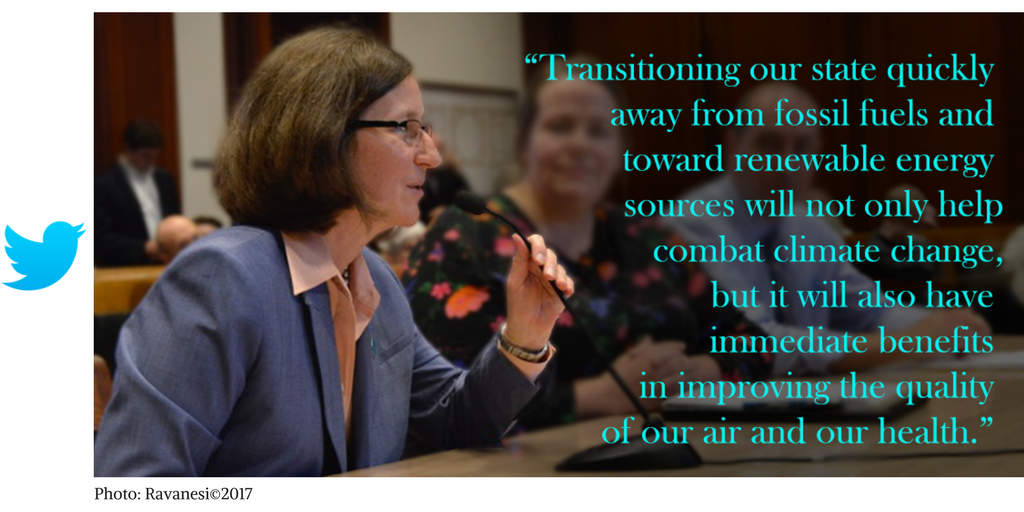Physicians testify on climate and health

Boston area doctors from Physicians for Policy Action testified before Massachusetts state legislators in September in support of increasing the state’s Renewable Portfolio Standard (RPS). An RPS is the foundation for clean energy markets and a proven policy tool to support successful, cost-effective renewable energy development at the state level.
Physicians for Policy Action partnered with Health Care Without Harm to represent their hospitals in advocating for state policies, such as increasing the RPS, that address climate change and protect the health of their patients.
Dr. Regina LaRocque, an infectious disease physician and researcher, represented Partners HealthCare, a U.S. Health Care Climate Council member. She urged state lawmakers to increase the RPS by at least 2 percent each year, testifying that investments in clean energy would have significant health benefits for citizens of the state:
LaRocque emphasized that Partners HealthCare supports an increase in the RPS for its benefits to public health as well as the increased access to clean energy it will offer Partners’ hospitals.
La Rocque was joined by other physicians and health experts who also testified on behalf of increasing the RPS, including Dr. Alexander Rabin, representing Massachusetts General Hospital, and Dr. Mary Rice from Beth Israel Deaconess Medical Center.
In a joint statement, Rabin and Rice explained how increasing the state’s reliance on renewable energy presented an opportunity to address to two serious threats to public health:
“With this piece of legislation, S. 1849, we have an incredible opportunity to tackle two closely related problems: climate change and air pollution. By eliminating sources of carbon dioxide  emissions, we also remove sources of air pollution. And decreasing air pollution has enormous benefits on public health, including improvements in childhood lung development and longer life expectancy. Addressing the source of climate change and reducing air pollution is a win-win proposition.”
emissions, we also remove sources of air pollution. And decreasing air pollution has enormous benefits on public health, including improvements in childhood lung development and longer life expectancy. Addressing the source of climate change and reducing air pollution is a win-win proposition.”
The physicians were joined by Bill Ravanesi, Health Care Without Harm senior director of Green Buildings and Energy and co-chair of the Boston Green Ribbon Commission’s Health Care Working Group. In his testimony, Ravanesi noted that because energy is health care’s largest cost after labor and pharmaceuticals, increasing the RPS enables hospitals to lock in lower, fixed rates for their long-term clean energy needs leading to lower health care costs for consumers.
The Massachusetts state legislature is expected to make a decision about the RPS in 2017.
If you are a clinician interested in engaging in advocacy, contact Dr. Amy Collins.

